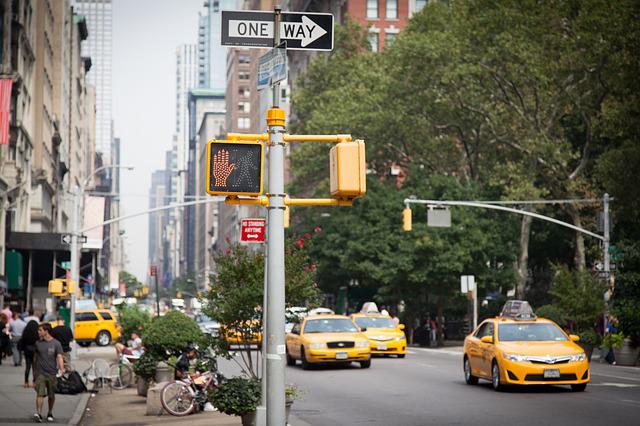Implied consent is a common issue in many DWI (driving while intoxicated) cases, and requires a person to consent to testing when suspected to be driving under the influence. This article will address implied consent, refusal to consent, and the consequences thereof.
What is Implied Consent?
New York law requires testing in the event that someone is suspected to be driving under the influence. This is known as an implied consent law. Under this law, if an individual is arrested with probable cause that they have been driving while intoxicated, an officer will request that they take a chemical test.
The law states that anyone who uses a motor vehicle on public roadways automatically consents to a chemical test to determine intoxication. Law enforcement administers the chemical test, which assesses an individual’s blood alcohol concentration (BAC).
Chemical Test Protocol
The arresting officer must administer the chemical test within two hours of alcohol consumption. An individual should expect their saliva, blood, or urine to be tested. In addition to the chemical test, an officer can request a breathalyzer test if they believe that someone was driving while intoxicated. The officer can request further testing if the breathalyzer test detects a blood alcohol level of .08 or above.
What Can Happen if I Refuse to Provide Consent?
If an individual refuses to provide consent for the breath or chemical tests, there can be a number of outcomes. Any penalties for refusing a breath or chemical test will come in addition to the penalties that already result from a DWI charge. In this case, an individual can be convicted of both a chemical test refusal and a DWI.
What Happens if Consent is Withheld Multiple Times?
Another factor to consider is the number of refusals an individual has given. The penalties an individual receives tend to increase in accordance with the number of refusals:
- First refusal: An individual’s driver’s license will be suspended for a year and they will receive a $500 fine;
- Second refusal: An individual’s driver’s license will be suspended for 18 months and they will receive a $750 fine;
- Third refusal: An individual’s driver’s license will be permanently revoked.
Lastly, an individual can challenge a breathalyzer result. If a person wishes to dispute a breathalyzer result, they should ideally not refuse the test, but rather take it and then dispute it. There are a few reasons that a breathalyzer result might be challenged, including:
- The breathalyzer was not calibrated;
- The officer was not properly trained to administer the test;
- The breathalyzer was not reliable;
- The breathalyzer is considered an illegal search; or
- The arresting officer does not testify in court when asked to do so.
What are the Consequences for Driving Under the Influence?
If an individual operates a vehicle while under the influence, consequences can range from license revocation, mandatory fines, to jail time. For example, if someone suspected of driving while intoxicated refuses to consent to a sobriety test, their driver’s license can be revoked for a minimum of one year, they may receive a fine of $500, and even jail time for up to a year.
If this is a recurring event, the charge can increase to a felony. A felony can result in a four-year prison sentence.
Range of Consequences
The consequences an individual receives are based on their specific circumstances. A range of consequences exist, including fines, jail times, and required license action. Fines can range from a $1,000 minimum to a $5,000 maximum. Jail time can be up to 15 days at the minimum, and 4 years maximum. Community service may be added on top of jail time. License revocation, the most common consequence, can range from 90 days suspension minimum and 18 months maximum.
Frequently Asked Questions
Q: Does law enforcement need to have a warrant in order to administer a chemical test?
A: No, an officer does not need a warrant in order to require an individual driving while intoxicated to take a chemical test. An officer requesting a chemical test under these circumstances would be considered a valid search, because safety for the driver and others is the priority.
Q: If I pass a breathalyzer, does that mean I will not face any consequences?
A: No, if you pass a breathalyzer, you can still face consequences. You may still be charged depending on your circumstances. With that being said, if you pass the breathalyzer, there is still a chance that you will not face any consequences.
Q: Are chemical tests always accurate?
A: No, chemical tests are not always accurate. For example, if an individual recently consumed alcohol and then took a chemical test, all of the alcohol consumed may not show on the chemical test. If the chemical was taken too late after an individual consumed the alcohol, the alcohol may have already left their body.
Q: Who administers the chemical test, and where?
A: The person who administers the chemical test is typically the arresting officer, the officer who pulled you over. Usually, the chemical test will be administered right where you were stopped at, so possibly on the side of the road.
Q: Can a legally say no to a breath or chemical test?
A: Legally, yes, you can refuse to take the breath or chemical tests. Be sure to keep in mind that refusal of the tests can result in many penalties, whether it be a financial penalty or possibly having a record.
Contact Pride Legal
If you or a loved one has been involved in a DWI case, we invite you to contact us at Pride Legal for legal counseling or any further questions. To protect your rights, hire someone who understands them.

